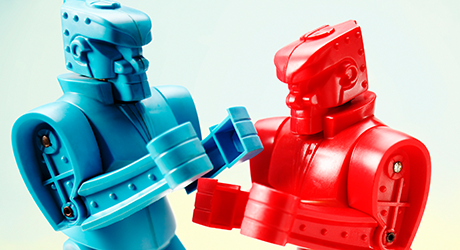Both credit cards and debit cards are useful and convenient means of payment, especially in the way most consumers shop today. So, you can use them interchangeably, right? Wrong, but don’t fret! We’ll help explain why it’s crucial to understand the differences between these two forms of payment in order to know when to use each one and why.
- Debit cards deduct funds straight from your bank’s checking account, immediately. If you don’t have sufficient funds, your bank may charge you an overdraft fee or refuse to pay the charge altogether - depending on your agreement with your bank. Therefore, it’s important to track each purchase so you’re never caught off guard to maintain an ample fund in your associated bank account before you use it.
- Credit cards allow you to borrow money against the line of credit your credit card company has given you. Your line of credit is typically the maximum balance you can have or place on your credit card. If your purchase total doesn’t exceed your limit and you’re in good standing with your credit card company, the merchant will approve your transaction. Depending on your agreement with your credit card company, you’re responsible for paying at least your minimum payment on your credit card balance each month.
If you carry over balances, the credit card company will charge you interest. Your interest charge is based on your credit card’s Annual Percentage Rate (APR). If your credit card has an APR of 15%, for example, a starting balance of $1,000 becomes approx. $1,013 at the end of a monthly credit card statement cycle when interest charges are applied. If you don’t pay off your credit card in full at the end of each month, you become accountable for paying these interest charges, which can quickly add up over the course of months, or even years. You risk damaging your credit score when you carry a balance that’s greater than a third of your credit limit.
Why Get A Credit Card?
Even though you run the risk of amassing interest payments when using a credit card, using one has its perks. For example, responsible use of a credit card can benefit you:
- Create financial independence. It’s always ideal to pay with cash. You don’t want to exceed your limit with purchases you can’t afford. However, paying in credit can be fitting if you need to keep extra cash on hand until you get your next paycheck. Just be sure to pay off your balance each month and reset your account to $0. That way you avoid paying unnecessary interest charges.
- Establish positive credit history. Landlords and lenders like to see your history of making and paying off purchases, which is why they’ll check your credit history before letting you rent an apartment or take out a vehicle or home loan from them.
Best Practices For Using Credit Cards
To set yourself up for success when using a credit card, it’s a good idea to do your research before. Read their terms carefully and choose a reliable one with no annual fee, lowest APR obtainable, and any added perks such as cash-back rewards or airline miles. Credit cards intended for students may also offer rewards for purchases you make at online stores for textbooks, furnishings and supplies.
Once you have your credit card, use it wisely. Pay your balances on time and in full each month to avoid paying interest and late-payment fees. Don’t rack up too much credit card debt. In the rare event you’re unable to pay off your full balance for a month or two, pay more than the minimum payment whenever possible and as early in the billing cycle as possible. This way you’ll accrue less interest. Also, stay well under your credit limit, avoid taking cash advances and check your credit at least once a year. There are various online resources available to get a free report such as annualcreditreport.com.
Why Get A Debit Card?
Despite not being able to accrue a positive credit history, a debit card can be quite handy. For example, they offer you an advantage when making small purchases from independent businesses. Merchants at small and local businesses pay lower transaction fees for debit purchases than those made with credit cards. Furthermore, a debit card can benefit you if you’re not great about paying your bills on time or a maximum credit card limit entices you to spend more money than you willingly know you have.
Benefits Of Plastic
Credit cards and debit cards are financial tools. Use them wisely and as a means to manage your money. Understanding how they work, their terms and when or where to use them can help you establish and maintain a positive credit history. A good credit not only feels great, but also benefits you with more favorable credit and lending terms and conditions in the future!





